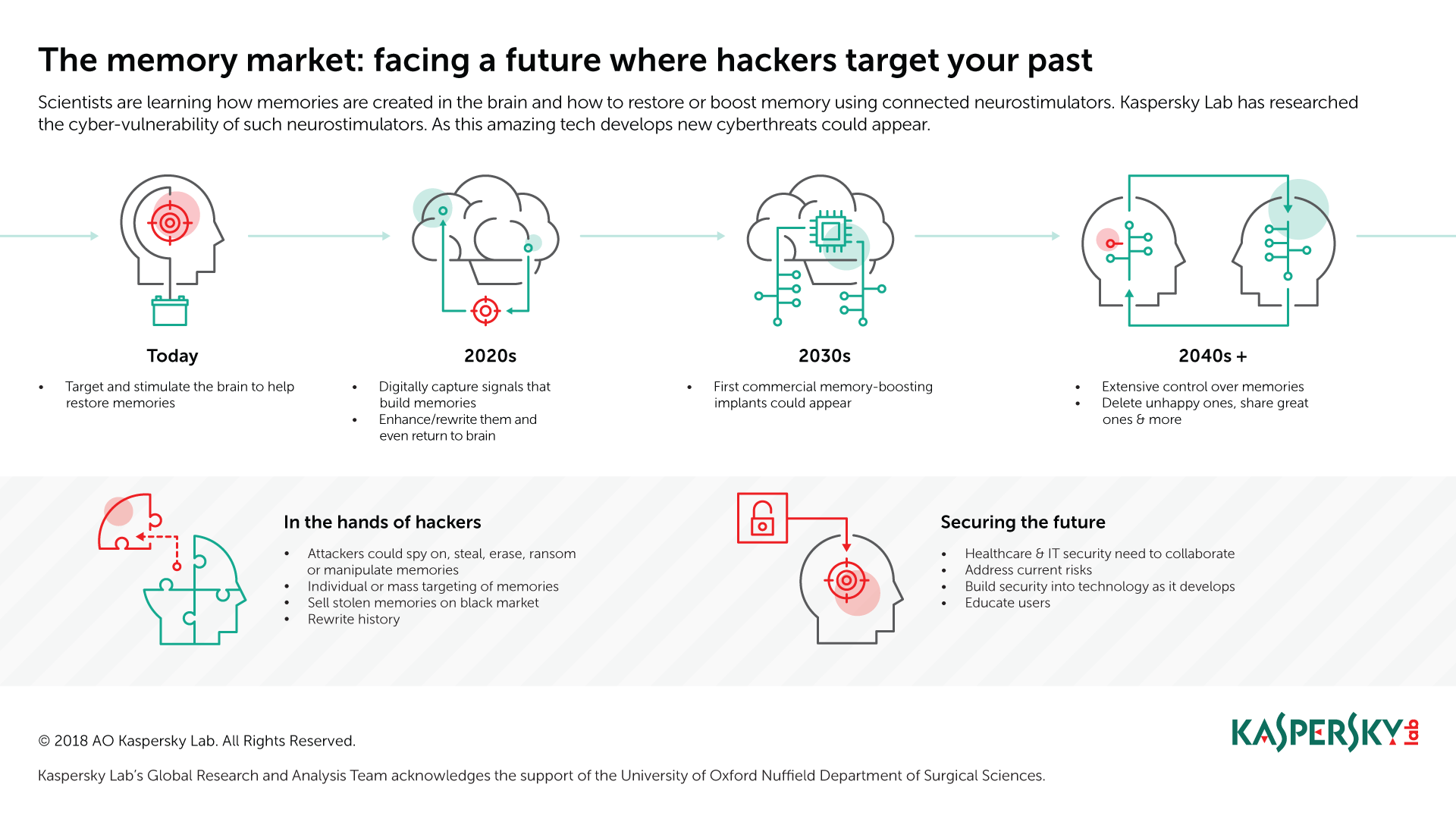The Independent's journalism is supported by our readers. When you purchase through links on our site, we may earn commission.
Hackers will soon be able to manipulate people's memory through brain implants, researchers warn
Within five years, scientists expect to be able to build memories and place them in the brain

The development of so-called neurostimulators may lead to dystopian scenarios whereby hackers create false memories and implant them in people's brains, researchers have warned.
The human brain is vulnerable to manipulation through implantable medical devices used to treat things like Parkinson's, according to a practical and theoretical review of this and other scenarios undertaken by the University of Oxford Functional Neurosurgery Group and Russian cyber security firm Kaspersky.
Within a decade, technology will also have progressed to the point that commercial memory boosting implants will be available to buy, according to the researchers, while 20 years from now could see a time when it will the technology will be advanced enough to allow for "extensive control over memories."

The development of these technologies will have a number of healthcare benefits and will open up the possibility of new bio-connected technologies like increased brain capacity, however it also holds the potential for exploitation and abuse.
"New threats resulting from this could include the mass manipulation of groups through implanted or erased memories of political events or conflicts; while 'repurposed' cyberthreats could target new opportunities for cyber-espionage or the theft, deletion of, or 'locking' of memories (for example, in return for a ransom)," the researchers wrote in their report 'The Memory Market: Preparing for a future where cyberthreats target your past'.
The report references an episode of the TV series Black Mirror, in which a brain implant allows users to record and replay everything they see and hear. A subsequent YouGov survey found that 29 per cent of viewers of the episode, The entire history of you, would be willing to use the technology if it existed.
Proof of concept experiments have already been carried out by the secretive US military research agency Darpa, proving that it is possible to boost people's ability to create short term memories.
"The hardware and software to underpin this exists too," the researchers note. "Neurostimulators, connected implants that can target and stimulate the brain to restore its function, are being used to address the symptoms of Parkinson's disease and even depression. It's not a huge leap for these devices to become 'memory prostheses'. Five years from now we may be able to electronically record the brain signals that build memories, and then enhance or even rewrite them before putting them back in the brain."
The possibility of cyber attacks on such devices arises as a result of override functions inbuilt in the software, which are required in case of a medical emergency.
In order to protect against such threats, the researchers say greater collaboration is needed between healthcare professionals, device manufacturers and the cyber security industry.
"Current vulnerabilities matter because the technology that exists today is the foundation for what will exist in the future," the report concludes. "Although no attacks targeting neurostimulators have been observed in the wild – a fact that is not altogether surprising since the numbers currently in use worldwide are low, and many are implemented in controlled research settings, several points of weakness exist that will not be hard to exploit."
Join our commenting forum
Join thought-provoking conversations, follow other Independent readers and see their replies
Comments
Bookmark popover
Removed from bookmarks